-
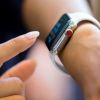 +14 +1
+14 +1Apple adds heart monitoring to Apple Watch
Apple just announced a new Watch called Apple Watch Series 4. The new Apple Watch comes with a larger, edge-to-edge screen, giving it the biggest facelift since its launch in 2014. The screen is 30 percent larger than the previous version, while the device itself has become thinner.
-
 +14 +1
+14 +1Majority of heart failure cases being missed by GPs as 'target culture' blamed for new 'medical emergency'
Two thirds of cases of deadly heart failure are being missed by GPs - amid warnings that an NHS target culture is fuelling a “medical emergency”. Leading cardiac experts said women and older patients were faring worst, amid “dangerous” failures to spot the life-threatening condition which can be treated with cheap pills.
-
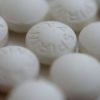 +30 +2
+30 +2Aspirin disappoints for avoiding first heart attack, stroke
Taking a low-dose aspirin every day has long been known to cut the chances of another heart attack, stroke or other heart problem in people who already have had one, but the risks don't outweigh the benefits for most other folks, major new research finds.
-
 +26 +1
+26 +1A Harvard Scientist Thinks He Has a Gene Test for Heart Attack Risk. He Wants to Give It Away Free.
A Harvard scientist thinks he's reached a new milestone: a genetic test that helps identify people who are at high risk of having a heart attack. Can he convince doctors to use it? "I think--in a few years, I think everybody will know this number, similar to the way we know our cholesterol right now," muses Sekar Kathiresan, director of the Cardiovascular Disease Initiative at the Broad institute and a professor at Harvard Medical School.
-
 +40 +1
+40 +1Salt not as damaging to health as previously thought, says study
New research reignites a row with scientists who want to reduce salt intake to near zero
-
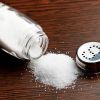 +16 +1
+16 +1Moderate Salt Intake May Not Increase Risk of Heart Diseases, Says Study
A new study published in the journal Lancet has indicated that we may have been demonising salt a little too much.
-
 +22 +1
+22 +1Better blood test may spot heart attack faster.
A new blood test can help emergency room doctors more quickly determine whether patients with chest pain are having a heart attack. The test is a more sensitive version of one that emergency physicians have been using. The conventional troponin test takes three hours, the high-sensitivity version can give results in less than an hour. High-sensitivity troponin tests have been available in Europe and elsewhere for years. But the first such test in the United States was just approved last year.
-
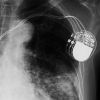 +19 +1
+19 +1A New Pacemaker Hack Puts Malware Directly On the Device
The first pacemaker hacks emerged about a decade ago. But the latest variation on the terrifying theme depends not on manipulating radio commands, as many previous attacks have, but on malware installed directly on an implanted pacemaker. For nearly two years, researchers Billy Rios of the security firm Whitescope and Jonathan Butts of QED Secure Solutions have gone back and forth with pacemaker manufacturer...
-
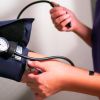 +2 +1
+2 +1Common heart drug recalled in 22 countries for possible cancer link
A common drug used to control blood pressure and help prevent heart failure is being recalled in 22 countries because it contains a chemical that poses a potential cancer risk. Valsartan is off-patent and is used as a component of other generic medicines. Novartis, the company that originally developed the drug, said Sandoz valsartan and valsartan/HCT film-coated tablets are being recalled since they "do not meet our high quality standards."
-
 +6 +1
+6 +1Errors Trigger Retraction Of Study On Mediterranean Diet's Heart Benefits
Ask just about anybody, and you'll probably hear that a healthy diet is one full of fruits and vegetables, olive oil, nuts and fish — what's called Mediterranean diet. A lot of research has suggested people who eat this way tend to be healthier, but it's been harder to prove whether that is because of the diet or some other factor.
-
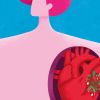 +17 +1
+17 +1Self-repairing organs could save your life in a heartbeat
What becomes of the broken-hearted? In cardiac medicine, the answer is usually brutally straightforward: they die. Heart disease is the leading cause of death worldwide and there is often precious little we can do about it. Pacemakers bring some relief and transplants work, but there are nowhere near enough donated hearts to go around. And unlike skin and liver cells, heart muscle cells can’t remake themselves. Once they get damaged or die, they are gone forever.
-
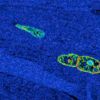 +18 +1
+18 +1Exercise may help make heart younger, Harvard-affiliated study says
Doctors, health organizations, and the U.S. surgeon general all agree that exercise is good for the heart. But the reasons why are not well understood. In a new study performed in mice, researchers from the Harvard Department of Stem Cell and Regenerative Biology, Massachusetts General Hospital, Harvard Medical School, and the Harvard Stem Cell Institute uncovered one explanation for why exercise might be beneficial: It stimulates the heart to make new muscle cells, both under normal conditions and after a heart attack.
-
 +14 +1
+14 +1One in three heart surgeons refuse difficult operations to avoid poor mortality ratings, survey shows
At least one in three heart surgeons has refused to treat critically ill patients because they are worried it will affect their mortality ratings if things go wrong.
-
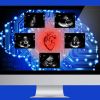 +14 +1
+14 +1AI Cardiologist Aces Its First Medical Exam
Rima Arnaout wants to be clear: The AI she created to analyze heart scans, which easily outperformed human experts on its task, is not ready to replace cardiologists. It was a limited task, she notes, just the first step in what a cardiologist does when evaluating an echocardiogram (the image produced by bouncing sound waves off the heart). “The best technique is still inside the head of the trained echocardiographer,” she says.
-
 +7 +1
+7 +1Scientists find link between Inflammatory Bowel Disease and heart attacks
Inflammation has long been recognised as playing a key role in the development of heart disease.
-
 +21 +1
+21 +1First of its kind study shows cannabis could be used in ER to treat stroke and cardiac arrest.
CBD, a prominent compound found in cannabis, is becoming known across the globe as a substance that can effectively treat a wide range of health issues including but certainly not limited to chronic pain, inflammatory bowel disease, pharmaceutical dependence, painful side effects of terminal illnesses, and epilepsy. A recent study indicates that CBD’s benefits may also be broadened to treat sufferers of strokes and other cardiovascular-related issues.
-
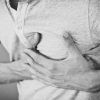 +21 +1
+21 +1Nurse Alone in Clinic Treats Himself for Heart Attack
A 44-year-old nurse who works in a remote medical facility in Coral Bay, Australia, was the only person on duty when he began to experience heart attack symptoms and knew he would have to attempt his own treatment. His story, told by Felicity Lee, MB, from the Sir Charles Gairdner Hospital in Nedlands, Western Australia, and colleagues, appears in a March 8 letter to the editor in the New England Journal of Medicine (NEJM ).
-
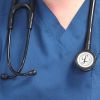 +5 +1
+5 +1Fewer heart attack patients die when top cardiologists are away at conferences, study finds
Heart attack patients are more likely to survive when top cardiologists are not in the hospital, a new study suggests. Researchers at Harvard Medical School found that when heart specialists are away at academic conferences, the survival rate at their hospitals actually improves. They believe that specialists who attend the meetings are more prone to using intensive interventions for their patients which may do more harm than good, rather than taking a more holistic approach.
-
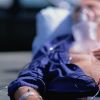 +18 +1
+18 +1Big outdoor temperature swings tied to heart attack risk.
Many people know that extreme cold can raise your chances of having a heart attack, but a new study suggests that wild swings in temperature may do the same.
-
 +26 +1
+26 +1Kevin Smith: I'm "Living on Borrowed Time" After Heart Attack
Speaking to Ralph Garman's 'The Ralph Report' in his first interview since his health scare, the filmmaker says he was ready to die if it was his time.
Submit a link
Start a discussion




















